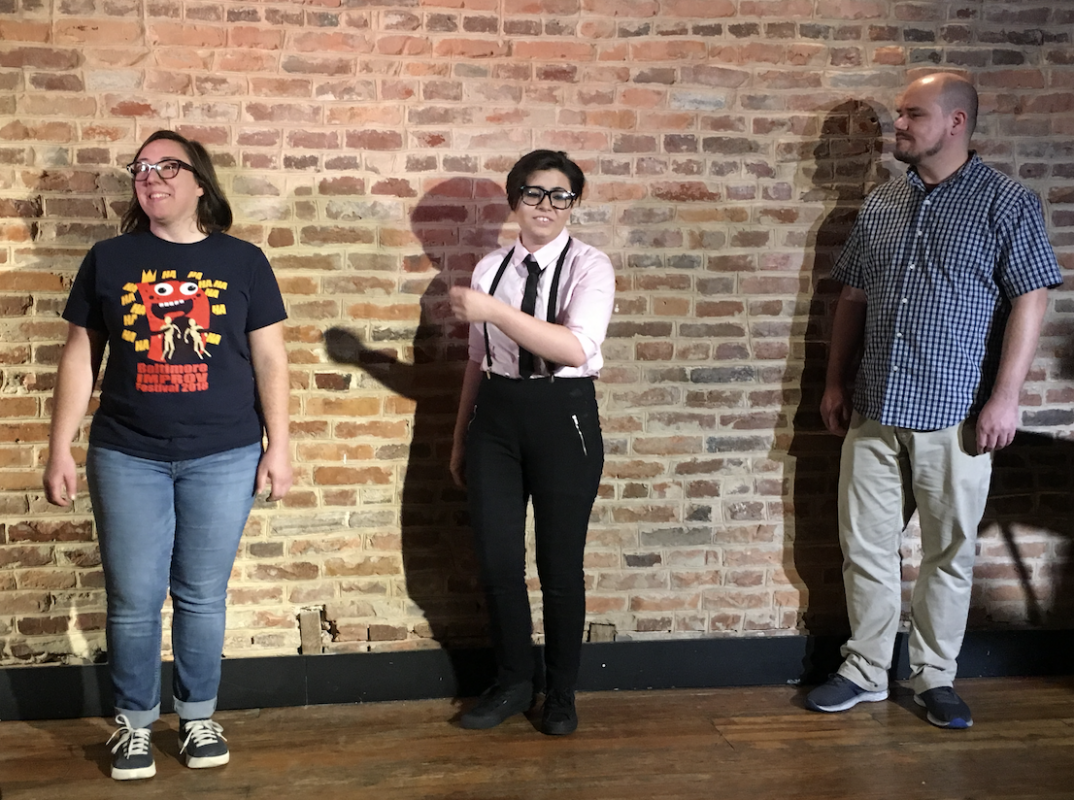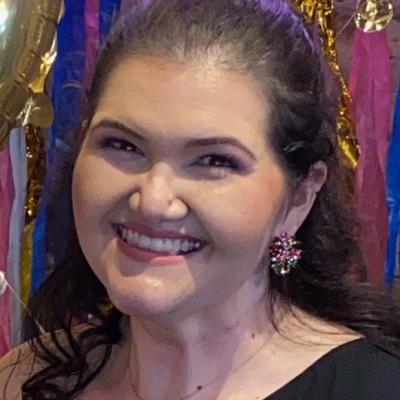
Walk into Zissimos Bar on any weekend night, go up the stairs to the left, and you’ll find yourself in the Lou Costello Room. It seems fitting that Costello would frequent a place like this—long and narrow, complete with old wooden floors, a vintage brick wall backdrop, and a single mic stand. That’s because he did.
Some 60 years ago, the famed comedian, whose aunt used to own Zissimos—the longest-operating business in Hampden—was known to tapdance on the bar. A few years back, Zissimos’ current owner, Geli Ioannou, who named the room to honor Costello and the original owners, was determined to turn the upstairs bar into a comedy space.
Today, the Lou Costello Room serves as the home to a different kind of comedy experience: the Charm City Comedy Project (CCCP).
The organization started in 2014 as a collective for local improv students, as well as out-of-towners looking to do improv on a regular basis. Now, the arts organization has grown into a collaboration of six house improv groups. Ioannou offered to rent out Zissimos’ upstairs as the troupe’s permanent performing space.
What separates CCCP from other improv and comedy groups in the area, though, is its emphasis on gender diversity and women in comedy.
“We have founded ourselves on a mission of inclusivity,” says CCCP director Megan Wills. “People weren’t getting the stage time they wanted, and improv is something learned most by actually doing it. You have to do it over and over again with people you know and trust.”
Starting in February of this year, Wills dedicated the first Friday and Saturday of each month to be “Ladies First Weekends,” in which CCCP hosts women-only performance troupes and a ladies stand up comedy showcase.
“One of the problems with improv is, in a lot of places, it’s a very white dude hobby,” says Cole Grinnell, a member of CCCP house troupe Silversmith since 2014. “But there are a lot of people trying to change that.”
CCCP is currently comprised of 50 performers, including 27 men, 21 women, and two non-binary individuals.
“I don’t think there’s any other improv group, theater group, or comedy club that is booking all-women performances on a regular basis,” Wills says. “It’s just not happening much. I wanted to show that we could.”
Alexa Sciuto, a member of Silversmith since 2016 and musical improv group Bad Karaoke Experience since 2017, says that she feels grateful to be a part of a group that brings women’s voices to the forefront. While many women are often overlooked in comedy, Sciuto notes that most female performers offer a unique perspective.
“I’ve heard the phrase so many times, ‘Vaginas aren’t funny,’” Sciuto says with a laugh. “And they’re right. Vaginas aren’t funny. Women are funny.”
Wills, along with business partner and CCCP coach and producer Michael Furr, is responsible for recruiting and booking performers every weekend at Zissimos. Guests pay $5 to attend shows ranging from improv and sketch troupes, to musical improv groups and stand up comedians. As CCCP approaches its fifth birthday in February, Wills estimates that she has personally booked more than 600 events.
In addition to arranging performances by outside troupes—some of which come from Philadelphia and Washington, D.C.—Wills also casts, directs, and coaches CCCP’s six troupes with Furr.
Each house troupe performs at least one night per month, and gets to play host on that evening—which means the members are able to experiment with their acts.
“If you want to try something new, we want you to try it here,” Grinnell says. “If you want to do something weird, it’s a great place to do it.”
On Friday, Dec. 7, CCCP will feature its monthly ladies stand up showcase, and the rest of the year’s performances will build up to the organization’s holiday-themed show on Dec. 22.
After each performance, troupe members like to stick around the bar to interact with their audience. As Wills puts it, the CCCP has become its own tight-knit community within Baltimore’s arts scene.
“I think all of this is art,” Sciuto says. “It’s pulling from your own experience and making it relate to somebody else.”
